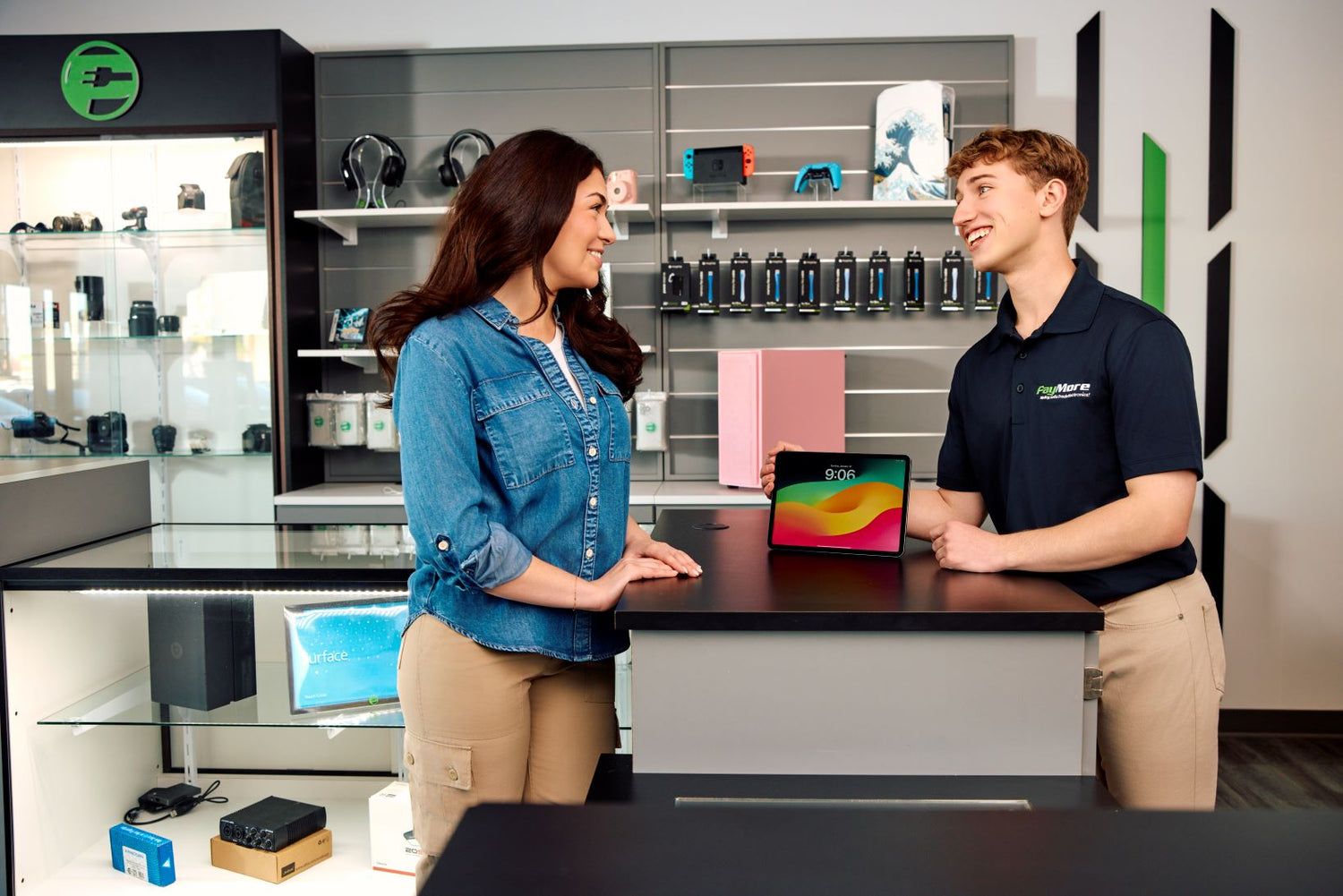Collection: Pokémon Trading Cards
-
New Pokémon TCG Mega Evolution: Phantasmal Flame Booster Pack
Vendor:PayMore BustletonRegular price $8.99 USDRegular priceUnit price / per -
New Pokémon TCG Pokéball Tin Toy
Vendor:PayMore BustletonRegular price $27.99 USDRegular priceUnit price / per -
Pokémon TCG Delta Species Ditto 38/113 English
Vendor:PayMore BustletonRegular price $29.99 USDRegular priceUnit price / per -
Pokémon TCG Crown Zenith Galarian Rapidash V 168/198 English
Vendor:PayMore BustletonRegular price $64.99 USDRegular priceUnit price / per -
Pokémon TCG Celebrations M Rayquaza EX 76/108 English
Vendor:PayMore BustletonRegular price $49.99 USDRegular priceUnit price / per -
Pokémon TCG Tag Team Reshiram & Charizard GX SM247 English
Vendor:PayMore BustletonRegular price $39.99 USDRegular priceUnit price / per -
Pokémon TCG Pikachu RC7/RC25 English
Vendor:PayMore BustletonRegular price $39.99 USDRegular priceUnit price / per -
Pokémon TCG Celebrations Birthday Pikachu 24 English
Vendor:PayMore BustletonRegular price $29.99 USDRegular priceUnit price / per -
Pokémon TCG Gold Star Greninja SWSH144 English
Vendor:PayMore BustletonRegular price $19.99 USDRegular priceUnit price / per -
Pokémon TCG Black Star Promo Black Star Promo Umbreon SWSH129 English
Vendor:PayMore BustletonRegular price $19.99 USDRegular priceUnit price / per -
Pokémon TCG Crown Zenith Dunsparce GG23 English PSA Mint 9
Vendor:PayMore BustletonRegular price $19.99 USDRegular priceUnit price / per -
Pokémon TCG Paradox Rift Gimmighoul 198 English PSA Mint 9
Vendor:PayMore BustletonRegular price $24.99 USDRegular priceUnit price / per -
Pokémon TCG Surging Sparks Skarmory 209 English
Vendor:PayMore BustletonRegular price $49.99 USDRegular priceUnit price / per -
Pokémon TCG Black Bolt Genesect EX Special Illustration #196 English
Vendor:PayMore BustletonRegular price $54.99 USDRegular priceUnit price / per -
Pokémon TCG Black Bolt Zekrom EX Full Art #172 English
Vendor:PayMore BustletonRegular price $399.99 USDRegular priceUnit price / per -
PayMore Pokémon Bargain Bin Treasure Pulls – Genuine Cards $1 to $19
Vendor:PayMore StoresRegular price From $0.99 USDRegular priceUnit price / per

Sell electronics for cash in Bustleton, PA today!
Visit a PayMore Store today to trade in your old devices for cash. We offer top dollar and ensure all device data is wiped for your peace of mind. Whether you have phones, tablets, laptops, game systems, or more, experience a streamlined process for trading in electronics and receiving instant cash.

PayMore Stores® Guarantee
All devices are genuine, thoroughly tested, and fully functional. Each device sold includes a 30-day warranty for your peace of mind. Selling your old electronics? We offer top-dollar instant cash offers while ensuring your data remains safe and secure.
Pokémon Card FAQs
What are the Pokémon card types?
Pokémon cards come in three main types: Pokémon, Trainer, and Energy cards. Pokémon cards represent creatures used in battle and come in different elemental types (like Fire, Water, or Electric). Trainer cards support gameplay with effects or tools. Energy cards power a Pokémon’s attacks.
How are Pokémon card values determined?
Card values are based on rarity, condition, edition, demand, and whether the card is graded. Factors like being a 1st Edition, having a holographic finish, or being competitively viable can increase value. Popularity of the Pokémon and current market trends also play a role.
Is 1st Edition better than Unlimited?
Yes, 1st Edition cards are usually more valuable than Unlimited cards. They were printed in smaller quantities and marked with a “1st Edition” stamp, making them more collectible and desirable to buyers.
How do graded Pokémon cards work?
Graded cards are professionally evaluated for condition and authenticity by services like PSA, CGC, or Beckett. Cards receive a numeric score (typically 1–10), sealed in a tamper-proof case. Higher grades, especially 9 or 10, can significantly increase a card’s value.
What is the difference between Holo, Reverse Holo, and Non-Holo Pokémon cards?
- Holo (Holographic): The artwork of the Pokémon is shiny.
- Reverse Holo: The artwork is matte, but the rest of the card is holographic.
- Non-Holo: No holographic effect—entirely flat finish.
Holos and Reverse Holos tend to be more sought after than Non-Holos.
Should I get my Pokémon cards graded before selling them?
It depends. Grading adds value to rare, vintage, or mint-condition cards. But for modern or lower-value cards, grading may cost more than the potential increase in value. If you're unsure, bring them into PayMore—we'll help you decide if grading is worth it.
Can I sell my Pokémon cards to PayMore Bustleton?
Yes! Visit your nearest PayMore store with your cards, and we’ll evaluate them and offer you cash or store credit on the spot.
Do I need an appointment to sell Pokémon cards?
No appointment needed. Just walk in with your collection during store hours.
How does PayMore Bustleton determine the value of my Pokémon cards?
We assess condition, rarity, demand, edition, and recent market trends to determine the fair market value of your cards.
Does PayMore Bustleton accept graded Pokémon cards?
Yes, we buy graded cards from PSA, BGS, and CGC. Higher grades typically command higher offers.
Can I sell an entire Pokémon card collection?
Definitely. Whether it’s a few cards or hundreds, we’re happy to review your entire collection.
Can I sell my sealed products?
Of course, we buy sealed products such as Elite Trainer Boxes, Booster Boxes, Tech Sticker Packs, Poster Collections, and more.
Can I trade my Pokémon cards for electronics?
Yes! Not only do we offer cash, but you can also trade in your electronics for store credit and use it toward anything we have in stock.
















